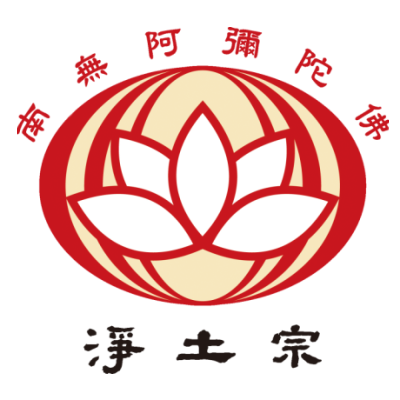笨得好!—愚人节有感 Foolishness Can Be Great! — Reflections on April Fools’ Day | 净本法师开示
请选择语言:中文 English
愚人节的起源之一,据说是源自法国改动新年日期的历史事件。当时法国原本以四月一日为新年,后来国王下令改为一月一日。一些保守人士反对新制,仍坚持以四月一日为新年;支持改革的人便在四月一日举办假聚会、送假礼物,嘲弄那些不愿接受新制的人。久而久之,四月一日便演变为「愚人节」。
从通途佛法的角度来看,「愚」或「愚痴」被视为烦恼之一,象征心性不明,没有通达事理的智慧。因此在一般法门中,愚痴在通往解脱开悟的修行中确实是一大障碍。
然而,在念佛法门却未必如此。
古人说:
「圣道门之修行者,极智慧离生死;
净土门之念佛人,还愚痴生极乐。」
善导祖师也云:
「自身现是罪恶生死凡夫,旷劫以来常没常流转,无有出离之缘。
决定深信:彼阿弥陀佛四十八愿,摄受众生;无疑无虑,乘彼愿力,定得往生。 」
印光大师更是指出:
「高明者反不如愚夫愚婦顓蒙念佛者,為能潛通佛智,暗合道妙,感應道交,蒙佛接引,即得往生也。」
「念佛一法,最好学愚夫愚妇,老实行持为要。俗言:聪明反被聪明误,可不惧乎?」
因此,「愚」在其他法门或许是障碍,但在念佛法门却可能成为殊胜的增上缘。何以如此呢?
因愚者心境单纯,不会过度思惟,容易顺服于阿弥陀佛的愿力,专念佛号。佛言念佛殊胜,愚者深信不疑,虔诚奉行。久而久之,自然和阿弥陀佛心心相应,感应道交。这种「愚」,不再是缺陷,反而是「愚」得有价值,「愚」得有意义,「愚不可及」!
相对地,自以为聪明的人,对佛语总是诸多揣测,妄加己见,结果大好修行法门明明摆在面前,却被自己所设的障碍困住。到最后,聪明反不如愚者念佛。
昙鸾祖师曾感叹说:
「愚哉,后之学者!闻他力可乘,当生信心,勿自局分也。」
因此历代祖师大德,在念佛法门上都往往自称愚者,因为念佛法门的道理,唯有佛与佛之间方能彻底明了。即使凡夫有再高的智慧,在阿弥陀佛广大的愿力之前,也如杯水对大海一般微不足道。
古德说:
「我是不足取之人也,如不知黑白之童子、不知是非之愚人,唯念佛仰信往生也。」
莲池大师也坦承:
「余下劣凡夫,安分守愚,平生所務,惟是“南無阿彌陀佛”六字。」
印光大师亦言:
「吾乃一平常粥饭僧,只知学愚夫愚妇之老实念佛。」
因此,安愚念佛,实乃大善根、大福德、大因缘。所谓“笨得好”,即在此理。愿我等皆作念佛愚人,乘佛愿力,同归净土。南無阿彌陀佛。
English Translation:
Foolishness Can Be Great! — Reflections on April Fools’ Day
| Venerable Jingben |
One of the stories about the origin of April Fools’ Day is linked to a historical event in France, where the date of the new year was changed. Originally, New Year’s Day was April 1, but later the king declared that it be changed to January 1. Some conservatives rejected this change and insisted on celebrating the new year on April 1. Those who supported the reform would play pranks on April 1—holding fake gatherings, sending fake gifts—to mock those unwilling to accept the new date. Over time, April 1 became known as “April Fools’ Day.”
From the perspective of general Buddhist teachings, “foolishness” (or “ignorance”) is considered one of the afflictions, signifying a lack of clarity in one’s nature and the absence of wisdom to understand principles. In most Dharma schools, ignorance is indeed a major obstacle on the path to liberation and enlightenment.
However, this may not be the case in the Pure Land school of Buddhism.
The ancient master said:
“Practitioners of other paths rely on profound wisdom to attain liberation; but in the Pure Land school, “foolishly” chanting the Buddha’s name can lead to rebirth in the Land of Ultimate Bliss.”
Patriarch Shandao wrote:
“Realize that I am, in essence, an ordinary being bound by life and death, guilty of wrongdoing for countless aeons, without any means of escape.
Resolve to have deep faith in the Forty-Eight Vows of Amitabha Buddha, who embraces all beings without doubt or hesitation. Relying on His power, one is assured of rebirth (in the Pure Land).”
Master Yinguang also pointed out:
“Those who are highly intelligent may not match the accomplishments of ordinary, uneducated people who recite the Buddha’s name with unpretentious earnestness. By such earnest recitation, they secretly connect with the Buddha’s wisdom and unknowingly align themselves with the profound essence of the Dharma, entering into a response with the Buddha and receiving his guidance to be reborn in the Pure Land.…When it comes to the practice of Buddha-name recitation, it is best to learn from uneducated men and women, implementing it with the utmost sincerity. As the saying goes, ‘Too much cleverness can mislead one’s path.’ Is this not cause for caution?”
Thus, “foolishness” might be an obstacle in other Dharma gates, but in the Pure Land path, it may become a wondrous aid. Why? Because someone who is “foolish” tends to have a simple mind, less prone to overthinking, and is more ready to trust in the power of Amitabha Buddha’s vows and recite the Buddha’s name wholeheartedly. When the Buddha says that reciting the Buddha’s name is extraordinary, such a person believes it wholeheartedly and practices diligently. Over time, they naturally connect with Amitabha Buddha, thereby invoking a mutual response. This kind of “foolishness” is no longer a defect but becomes a valuable and meaningful asset—truly “foolishness beyond compare.”
On the other hand, those who consider themselves “smart” are often burdened by endless doubts, speculations, and personal interpretations of the Buddha’s words. Even though an excellent method of cultivation is right in front of them, they become entangled in their own self-created obstacles. In the end, all their cleverness cannot match the simple recitation of the Buddha’s name by those deemed “foolish.”
Patriarch Tanluan once lamented:
“Foolish indeed are later generations of practitioners! Once they hear that the Other-Power (the power of Amitabha Buddha) can be relied upon, they should give rise to faith and not limit themselves.”
Throughout history, patriarchs and eminent masters in the Pure Land tradition often referred to themselves as “foolish,” for the profundity of the Pure Land method is fully understood only by Buddhas. Even the highest wisdom of an ordinary being is like a drop of water compared to the vast ocean of Amitabha’s great vow-power.
The ancient master said:
“I am one whose merit is not worth mentioning—like a child who cannot tell black from white, or a person ignorant of right from wrong. I rely solely on reciting the Buddha’s name with utmost faith to gain rebirth (in the Pure Land).”
Master Lianchi also acknowledged:
“I am merely a humble and inferior ordinary being. Content to remain ‘foolish', I have devoted my entire life solely to the ‘Namo Amitabha Buddha.’”
Likewise, Master Yinguang stated:
“I am just a regular monk who eats his daily gruel and rice. I only know to emulate the uneducated men and women who earnestly recite the Buddha’s name.”
Therefore, to remain “foolishly” focused on reciting the Buddha’s name is indeed a manifestation of great karmic affinity, profound blessings, and profound roots of goodness. May we all become such “foolish” reciters of the Buddha’s name, relying on the power of the Buddha’s vows, and return together to the Pure Land.
Namo Amitabha Buddha
⧉ Pure Land Buddhism ⧉
≡Dharma: Youtube ≡
≡Website: www.plb-sea.org ≡
≡Contact: www.plb-sea.org/contact ≡
|Namo Amitabha Buddha|
